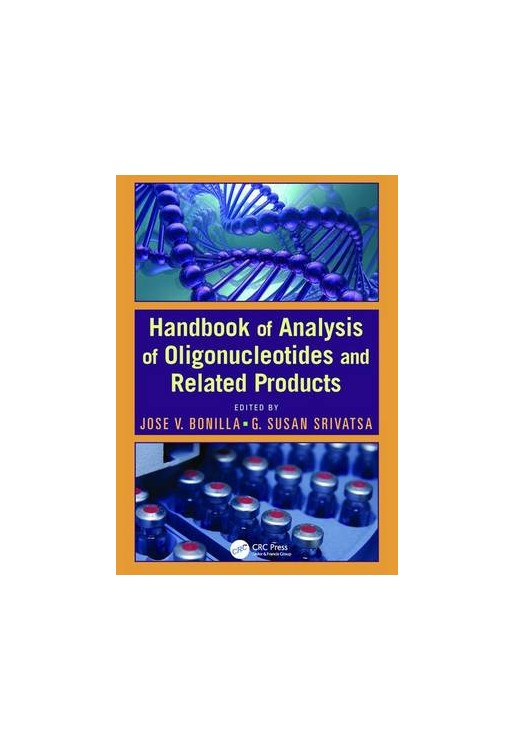Oligonucleotides represent one of the most significant pharmaceutical breakthroughs in recent years, showing great promise as diagnostic and therapeutic agents for malignant tumors, cardiovascular disease, diabetes, viral infections, and many other degenerative disorders. The Handbook of Analysis of Oligonucleotides and Related Products is an essential reference manual on the practical application of modern and emerging analytical techniques for the analysis of this unique class of compounds. A strong collaboration among thirty leading analytical scientists from around the world, the book provides readers with a comprehensive overview of the most commonly used analytical techniques and their advantages and limitations in assuring the identity, purity, quality, and strength of an oligonucleotide intended for therapeutic use.
Topics discussed include:
Strategies for enzymatic or chemical degradation of chemically modified oligonucleotides toward mass spectrometric sequencing
Purity analysis by chromatographic or electrophoretic methods, including RP-HPLC, AX-HPLC, HILIC, SEC, and CGE
Characterization of sequence-related impurities in oligonucleotides by mass spectrometry and chromatography
Structure elucidation by spectroscopic methods (IR, NMR, MS) as well as base composition and thermal melt analysis (Tm)
Approaches for the accurate determination of molar extinction coefficient of oligonucleotides
Accurate determination of assay values
Assessment of the overall quality of oligonucleotides, including microbial analysis and determination of residual solvents and heavy metals
Strategies for determining the chemical stability of oligonucleotides
The use of hybridization techniques for supporting pharmacokinetics and drug metabolism studies in preclinical and clinical development
Guidance for the presentation of relevant analytical information towards meeting current regulatory expectations for oligonucleotide therapeutics
This resource provides a practical guide for applying state-of-the-art analytical techniques in research, development, and manufacturing settings. This is a unique resource for guiding the analysis of oligonucleotide-based drug products. No other single source provides such a comprehensive overview of the necessary analytical techniques that assess the qualitative characteristics of oligonucleotides intended for pharmaceutical use.
-Rachel R Chennault, Ph.D.(American College of Clinical Pharmacy), in Doody's Notes
Purity Analysis and Impurities Determination by Reversed-Phase High- Performance Liquid Chromatography; H. Cramer, K. J. Finn, and E. Herzberg
Purity Analysis and Impurities Determination by AEX-HPLC; J. R. Thayer, V. Murugaiah, and Y. Wu
Purity Analysis and Molecular Weight Determination by Size Exclusion HPLC Analysis; M.F. Chan and I. Roymoulik
Analysis of Oligonucleotides by Liquid Chromatography-Mass Spectrometry; S. Pourshahian and S. M McCarthy
Sequence Determination and Confirmation by MS/M S and MALDI-TOF; Z. Timar
Tm Analysis of Oligonucleotides; H. Zhu and G. S. Srivatsa
Purity and Content Analysis of Oligonucleotides by Capillary Gel Electrophoresis; J.Carmody and B. Noll
Bioanalysis of Therapeutic Oligonucleotides Using Hybridization-Based Immunoassay Techniques; H. Legakis and S. Carriero
Oligonucleotide Assay and Potency; D. P. Michaud
Microbial Analysis: Endotoxin Testing; B. J. Markley
Analysis of Residual Solvents by Head Space Gas Chromatography; S. Countryman and J. V. Bonilla
Determination of Extinction Coefficient; V. Murugaiah
Structural Determination by NMR; M. L. DeRider, D. Brooks, and G. Burt
Infrared Analysis of Oligonucleotides; J. V. Bonilla
Stability Indicating Methods for Oligonucleotide Products; V. Murugaiah
Analysis by Hydrophilic Interaction Chromatography; R. N. Easter and P. A. Limbach
Determination of Base Composition; H. Aygun
Analysis of Metals in Oligonucleotides; M. P. Murphy
Regulatory Considerations for the Development of Oligonucleotide Therapeutics; G. S. Srivatsa


